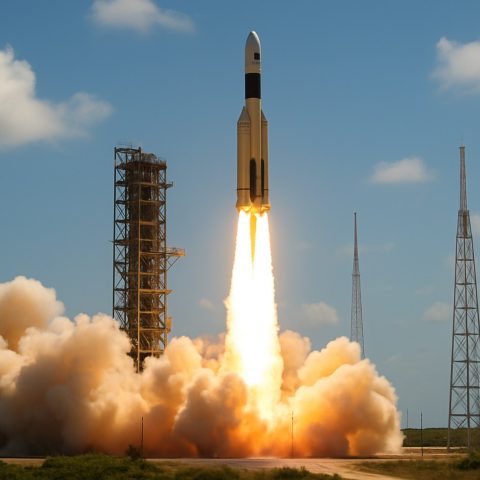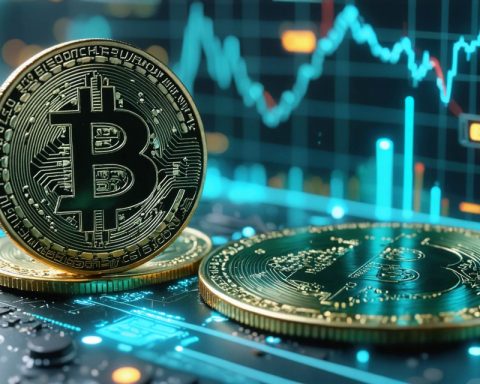The Future of Bitcoin Innovation
A groundbreaking proposal is in the works to establish a Bitcoin reserve that could potentially alter the cryptocurrency landscape. This ambitious plan aims to generate trust and stability within the volatile world of digital currencies.
The initiative seeks to create a robust reserve that would encompass significant Bitcoin holdings, ultimately providing a layer of security for investors. Proponents of the reserve believe that this move will not only solidify Bitcoin’s legitimacy but also attract larger institutions willing to engage with cryptocurrency.
However, the concept isn’t without its critics. Skeptics warn that such a reserve could lead to centralization, undermining the very decentralized principles that Bitcoin was built upon. They argue that if a small number of entities control substantial amounts of Bitcoin, it could create an imbalance in the market and diminish the democratic nature of the cryptocurrency.
The dialogue surrounding the proposed Bitcoin reserve is at the forefront of discussions in financial circles. As various stakeholders weigh the potential benefits against the risks, one thing is clear: the implications of this reserve could shape not just Bitcoin’s future but also the broader cryptocurrency ecosystem.
Investors and enthusiasts alike are holding their breath as they await further developments. Will this reserve usher in a new era for Bitcoin, or will it spark a fierce debate about the future of decentralized finance? Only time will tell.
Beyond the Reserve: The Broader Implications of Bitcoin Innovation
The establishment of a Bitcoin reserve could have profound ramifications for society and the global economy. By instilling greater confidence in Bitcoin, this initiative may pave the way for increased mainstream adoption of cryptocurrencies. As institutional investors begin to enter the market, it could catalyze a seismic shift in how digital assets are integrated into traditional financial models. This transition has the potential to revitalize economies in emerging markets, where financial systems often struggle to provide stability and accessibility.
However, the environmental impact of cryptocurrency dynamics remains a pressing concern. The energy-intensive nature of Bitcoin mining has drawn increased scrutiny, with studies estimating that Bitcoin mining alone contributes to around 0.5% of global electricity consumption. A centralized reserve could either exacerbate or alleviate these environmental challenges, depending on the energy sources employed and operational efficiencies. Innovation in this arena is critical, as sustainable practices in Bitcoin mining become more sought after.
Looking ahead, trends suggest a potential shift toward greater regulatory frameworks that could either limit or facilitate the development of such reserves. The tension between decentralization and regulation will likely define the coming years for cryptocurrencies, highlighting an ongoing debate about governance in digital finance systems. Ultimately, the proposed Bitcoin reserve is more than a financial instrument; it could symbolize a watershed moment in the evolution of currency, sustainability, and financial equity.
Is a Bitcoin Reserve the Next Step in Cryptocurrency Evolution?
The Future of Bitcoin Innovation
As the cryptocurrency landscape continues to evolve, a groundbreaking proposal has surfaced that could redefine the role of Bitcoin in the financial world. The establishment of a Bitcoin reserve aims to create trust and stability amidst the notorious volatility of digital currencies. Here’s an in-depth look at the potential implications, features, and challenges of this initiative.
What is the Bitcoin Reserve Proposal?
The primary objective of the Bitcoin reserve is to accumulate a substantial amount of Bitcoin holdings. This would provide a security measure for investors, potentially generating confidence in the cryptocurrency as a stable asset. Advocates of the proposal assert that such a reserve could enhance Bitcoin’s legitimacy and encourage larger institutional investors to engage with it, paving the way for widespread adoption.
Pros and Cons of the Bitcoin Reserve
Pros:
1. Increased Stability: By acting as a security layer, the reserve could mitigate some of Bitcoin’s price volatility, making it a more appealing investment option.
2. Institutional Attraction: The reserve could attract large-scale investments from institutions, fostering further integration of Bitcoin into traditional finance.
3. Legitimization of Bitcoin: A reserve may help entrench Bitcoin’s status as a legitimate asset class, aiding its acceptance among skeptics.
Cons:
1. Centralization Risks: Critics argue that a Bitcoin reserve could lead to centralization, contradicting the decentralized ethos of Bitcoin. A few entities controlling large amounts of Bitcoin could skew market dynamics.
2. Market Imbalance: Concentrated holdings could create disparities in market influence, raising concerns about the equitable distribution of power within the cryptocurrency space.
3. Future of Decentralized Finance: If the reserve gains traction, it may spark a debate about the future direction of decentralized finance (DeFi) and whether such initiatives align with the original principles of cryptocurrency.
Insights and Trends
As discussions unfold in financial circles, several insights emerge regarding the Bitcoin reserve:
– Market Sentiment: The proposal’s reception could significantly influence market sentiments and price movements of Bitcoin. Investors are closely monitoring developments, with many expressing cautious optimism.
– Regulatory Implications: Should a Bitcoin reserve become a reality, it may attract regulatory scrutiny, with authorities assessing its impact on market stability and investor safety.
– Sustainability Concerns: The environmental footprint of Bitcoin mining continues to be a focal point in discussions about its legitimacy and future. A reserve must consider sustainable practices to address these concerns.
Predictions and Market Analysis
Experts predict that the establishment of the Bitcoin reserve could catalyze significant shifts in how Bitcoin functions within the global economy. If successfully implemented, it might drive more traditional investors towards Bitcoin while simultaneously complicating its decentralized nature.
Use Cases and Compatibility
The primary use case for the Bitcoin reserve would be to act as a security mechanism for investors, potentially allowing for a more stable and reliable Bitcoin price. Moreover, this reserve could offer compatibility with other financial products and services, such as futures or ETFs, making Bitcoin more accessible to a broader audience.
Conclusion
The proposal for a Bitcoin reserve represents a pivotal moment in the evolution of cryptocurrency. While it holds the promise of stabilizing and legitimizing Bitcoin as an asset class, it also raises essential questions about centralization and the future of decentralized finance. As stakeholders in the cryptocurrency ecosystem await the outcome of this proposal, the future of Bitcoin hangs in the balance.
For further insights into the evolving world of Bitcoin and cryptocurrencies, visit CoinDesk for the latest news and analyses.










